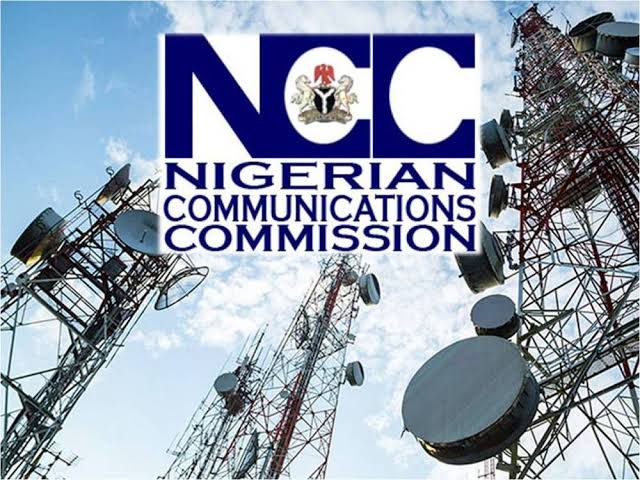Telcos cry out over facilities vandalism

…As NCC admits Telcos suffer 1,000 fibre cuts, 545 site denials, 99 thefts weekly
…Its economic sabotage’ – ALTON
By Juliet Umeh
Nigeria’s telecom backbone, responsible for moving trillions in daily banking transactions, enabling emergency communications, and keeping classrooms, hospitals, and businesses connected, is under siege.
From armed vandals ripping out underground fibre cables, to careless road contractors slicing through vital lines, to organised thieves raiding base stations for parts, the assaults have become relentless.
Fresh figures from the Nigerian Communications Commission, NCC, reveal the scale of the crisis stating that in 2025 alone, operators have faced 1,100 fibre cuts, 545 cases of site access denial, and 99 equipment theft incidents every week.
For industry players, these aren’t just numbers, they are daily operational nightmares.
NCC’s Executive Vice Chairman, Dr. Aminu Maida, speaking at the Industry Sustainability and Critical National Information Infrastructure, CNII, Conference in Lagos, organised by the Nigeria Information Technology Reporters Association, NITRA, in collaboration with the Association of Licensed Telecoms Operators of Nigeria, ALTON, described telecoms as “the nervous system of our digital economy,” a system whose compromise could paralyse the nation.
Maida said: “When a fibre is cut, a hospital may not be able to access patient records; when a tower is vandalised, an entire community may lose connectivity.”
14.4% GDP contributor under relentless attack
He said: “The irony is stark: in Q4 2024, telecoms contributed 14.4 percent to Nigeria’s GDP, enabling other sectors to thrive. Yet, the very infrastructure driving this growth is being sabotaged.
“Road construction crews often slice through fibre cables. Criminal gangs strip batteries, generators, and other site equipment. In some areas, community disputes block technicians from accessing towers.
“Each incident is costly; a single fibre cut can cost millions in repairs and lost business. Prolonged downtime drives customer frustration and business losses.”
From Presidential order to enforcement
Following a Presidential Order declaring telecom infrastructure as Critical National Information Infrastructure under the Cybersecurity Act, which became effective on June 24, 2024, the NCC said it has moved from policy advocacy to enforcement.
According to the NCC, key measures include: stricter technical standards for fibre, towers, and site maintenance; nationwide awareness campaigns on CNII; closer security collaboration with the Office of the National Security Adviser, ONSA; mediation in community disputes; and enforcement where dialogue fails.
Maida emphasised that protecting telecom assets is about more than security, it’s about ensuring the sector’s financial and operational stability. Operators also face high diesel costs, multiple taxes, site permit delays, and growing cyber threats.
Telecom operators warn that each attack doesn’t just drop calls, it stalls surgeries, halts ATM withdrawals, freezes online classes, and compromises national security.
‘Economic sabotage’ – ALTON
According to ALTON Chairman, Mr. Gbenga Adebayo, the persistent attacks on telecom infrastructure amount to an act of “economic sabotage.”
He stressed that the country’s “lifeline of the digital economy” is under constant threat from “vandalism, theft, negligence, weak enforcement, and poor coordination of development activities.”
Adebayo and other operators are demanding that the government take immediate action to prevent the country’s “digital heartbeat” from suffering a fatal blow. Specifically, they are pushing for the government to classify telecom infrastructure as critical national assets, implement stiffer penalties for sabotage, and coordinate all construction projects to prevent accidental fibre cuts.
Five layers of protection
Adebayo outlined five layers of protection needed to secure vital infrastructure: industry self-protection, community ownership and awareness, market accountability, coordination with development projects, and law enforcement with consequence management.
He explained that industry self-protection requires operators to enhance site security with measures like perimeter fencing, access control, guards, and surveillance.
“Community ownership and awareness focuses on public enlightenment to make communities active defenders of local telecom assets, while market accountability calls for a crackdown on the open sale of stolen components like batteries, generators, and fibre cables.
“Additionally, coordination with development projects aims to prevent service disruptions during road, pipeline, and other infrastructure works,” he said.
Adebayo added that law enforcement and consequence management are essential to ensure vandals face real penalties, including imprisonment.
He warned that telecom outages ripple across the entire economy, from banking and health services to national security.
“We must all take responsibility, because when telecoms go down, the entire economy feels the impact,” he added.
The post Telcos cry out over facilities vandalism appeared first on Vanguard News.







